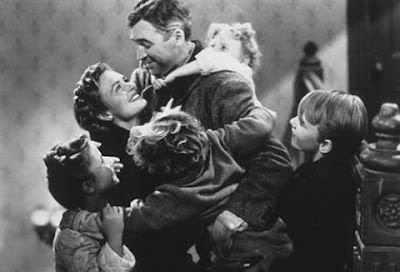"What, are you going to open a poetry store?"
(The following is an essay that has been in a notebook of mine for over a year now. A recent news item and the circumstances of my microcosm have prompted me to bring this out into the world . . .)
I am one who likes to read and think deeply. I enjoy watching how our moment communicates across time and space. I'm curious about who we are, and what we're becoming. But, because I have a background in literature, I also know that character is defined by action.
And, as such, I've concerned myself with a question now for a time, "How should one live?" It's not unique to me, this question. In fact, this question has been at the heart of the national conversation.
National conversation?
I've noticed a trend lately of a desire for an understanding of what it is to be human, what truly is satisfying, and what our responsibility is as our ecological systems's top predator.
"Eaarth to Doug!"
" . . . "
"Tom Luna got our attention, but what's your point? and just what is it you are doing here?"
I think this piece of writing is going to be a response to Tom Luna's education plan which places an emphasis on technology, but then also speaks to the larger existential moment we are having giving us the space to consider our fundamental economic paradigm and how it is an unbalanced, harmful system whose very speed is killing us!
So yes, today, I'm sitting in The Flying M, eating a piece chocolate cake, and writing in long hand, in an attempt to save the world! (Basically, this is your run-of-the-mill blog post bringing the macrocosm and microcosm into alignment.)
Essentially, Tom Luna proposes that technology will save us––that by making a nominal tech investment, the education budget could put some of the weight of the teaching responsibilities now undertaken by humans, who may or may not care about their jobs (but who do care about how much money they make), and moving some of these tasks to a quantifiable computer which does what its told and asks only for as much power as it needs to run its programs.
(Enter the Metropolis robot chicken dance here?)
I'd like to draw your attention to Jaron Lanier, one the visionaries who invented virtual reality, yet also, one who is a thoughtful and reasonable voice regarding technology. His recent You Are Not A Gadget illuminates the power of technology designers over our lives and gives us pause as he details a silcon valley cult that has begun to design and work not for humans, but for "The Cloud". (Zeus? Yahweh? Vishnu?) Thought provoking to be sure, but more importantly, I'd like to point out a recent article he did for the Sunday Times in which he stresses the importance of teachers. See, although he is the über technologist dreaming of digital possibilities, he is also clearly aware of what's important as a human.
And that of course, brings us back to our national dialog. Recall David Brooks' recent foray into this discussion in The New Yorker in which he boiled down the essence of human happiness into the kernel of a choice––the choice between two "fundamental" philosophic paths: On The Road or It's a Wonderful Life.
Did you know that It's a Wonderful Life began as a short story written as a Christmas card letter?
(OK, I'll march my "savior" out right now so we can get all these horses limber and ready to run)
Recall that Luna (and Bill McKibben) are leaning on technology as our "savior". Me? I have a difficult time believing that drinking more poison is going to save us. (Of course, I'm willing to concede that the antidote is often found IN the poison, though.)
Literature is the horse I want to bet on. And to this effect, I give you Mark Slouka's indictment of our educational system's failure (in light of our contemporary moment's dependence on all things technological). As you may be aware, there exists an interplay between the wiring of our brain, and the activities in which we engage, in conjunction with the machines we use to cary out these tasks. (Shallow much?) Thus, if imagination is the unquantifiable glory of the human, then the square, quantifiable logic of the computer is quashing our ability to dream our way out of our problems . . .
"I'm sorry, Dave. I'm afraid I can't do that."
By moving to quantify results of both teachers and student––to create the boxes to then measure, we make artificial both the process and results by removing the "human" from the endeavor. I guess I've reached the rambling point where I finally ask, "What's the goal of public education?"
And to that, we return to David Brooks. But before I venture an explanation of his metaphor, let's consider this through the lens of outcomes (or values), because it doesn't take much turning-over of this subject to realize that the root of the issue is again the nature of what it is to be human. The point of life.
If the goal of public education is to make students both good workers and consumers, then the boxy, quantifiable approach is the way to go. If our national goal is to buy and sell, to make money, and if the fundamental goal of the nation as driven by our economic engine is x% growth every year, then imagination isn't a prized value in the robot class. Of course, placing such a value upon growth does lead to a fundamental philosophy of more, better, cheaper, faster, and yields the world that we have.
Can we agree to pause and consider that perhaps this really isn't the world that we want?
It's David Brooks' conclusion from his recent article, that what really makes us happy as humans, is our network of relationships. And this is the meaning of the On The Road/It's a Wonderful Life comparison. On The Road presents a dream of adventure and hedonism––experience! Of course, this is what George Bailey wanted more than anything, to be free of his crummy, little, local network––to become a big man! Yet, it's all the unsexy, human bonds George Bailey forms over the course of a lifetime in his small community that illustrates the fullness of a human life after he has let go of his own wants and desires and realizes that it was the yielding of his selfishness to his community and family that made him the richest man in town. (The bucket of money at the end does hit the spot, too––but it's just a metaphor, right?)
So, if we don't value economic growth, then what the hell do we value? Truth? Beauty? "What, are you going to open a poetry store?"
Since we are considering technology, could I possibly get you to have a different look at something?
Consumerism depends on forgetting a truth and believing a falsehood. The truth that must be forgotten is that we humans have already spent millions of years evolving awesomely effective ways to display our mental and moral traits to one another through natural social behaviors such as language, art, music, generosity, creativity, and ideology. We can all do so without credentials, careers, credit ratings, or crateloads of product. Our finest, most impressive goods and services have been endowed to us by our DNA, in the from of physical and psychological adaptations that naturally display our virtues and naturally impress our peers. . . This is a core message from evolutionary psychology: the most precious, complex, intricate, and wonderful things in life are the biological adaptations common across all humans--especially the adaptations that signal our individual differences so conspicuously. We already have everything we could possibly need (84). . . ~Spent Geoffery Miller
On The Road is a solo endeavor, and The Road is the computer. The internet is a network of connections, but is it bringing us closer? It's the flattening of our humanity to fit into the computer boxes that I'm concerned with.
(See, I'm unwilling to choose an either/or (binary) decision. Both Ways Is The Only Way I Want It!)
I suppose here is that existential pause. We are killing ourselves with work to afford all the stuff we want to . . . ? (which in turn is killing the planet) More, Better, Cheaper, Faster?
What about: Fresh, Seasonal, Local, Organic?
I have come to an answer (or a way) in my probing of the question of how one should live:
Seek authenticity, practice thoughtfulness.
That said, the most important piece of technology in the classroom––aside from the teacher (who is indispensable) are books.
Yes, reading is a solo, On The Road type endeavor, but the literature model requires a group discussion after the reading to probe meaning. The bonds of community are formed as the individuals "submit" to the group to consider what they've found on the road.
The individual is strengthened by being a member of the group, but the group doesn't supercede the individual. (Your opinions stay your own). The group is actually strengthened by the unique and diverse identities of the individuals in the group. (Different opinions help the literature discussion discover things that no one member could find on their own––other view points become available, and it as if you can see through someone else's eyes––which is exactly the point of literature.) Also, diversity is the strength of nature after all.
So, money?

































Grrr. Git. Followers.
ReplyDelete